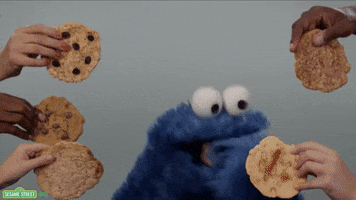In addition to proper tooth brushing, a healthy diet plays a crucial role in maintaining good oral health. This practice helps prevent cavities, gingivitis, and enamel erosion. Follow our dietary tips and enjoy a brilliant smile – without taking yourself too seriously, promise!
Also read:
- Oral Hygiene: Best Practices & Instructions for Good Routine
- Halitosis (Bad Breath): What It Is, Causes & Treatment
Table of Contents
- What foods should you eat for healthy teeth?
- What foods should you eat for white teeth?
- Which foods should be avoided?
- What nutrients strengthen the teeth?
- What are the risks of a poor diet?
What foods should you eat for healthy teeth?
Eating indiscriminately can feed plaque buildup and lead to cavities, inflamed gums, and damaged enamel. A good diet, on the other hand, helps prevent these issues. A balanced diet provides you daily with proteins, carbohydrates, fats, vitamins, minerals, and water. Certain foods are beneficial for your teeth!
1. Dairy Products
2. Antioxidants
3. Drink Plenty of Water
→ Don’t forget water! Drinking after eating washes away residues and reduces acidity. If your water contains fluoride, it’s the icing on the cake for your teeth.
3. Fatty Fish
→ Fatty fish are rich in vitamin D. This essential nutrient supports almost every system in the body and also helps reduce the risk of dental cavities. Vitamin D works in synergy with vitamins A and K2 to channel calcium to the teeth, thereby strengthening the inner enamel.
Additionally, fatty fish are an excellent source of omega-3, which promote gum health and may help alleviate the symptoms of periodontal disease. In other words, if you notice that your gums bleed while brushing or flossing, consider increasing your omega-3 intake to reduce inflammation and bleeding.
Among the fish richest in vitamin D and omega-3 are tuna, mackerel, salmon, and trout.
What foods should you eat for white teeth?
Which foods should be avoided?
Limit foods high in fermentable sugars (glucose, fructose). Bacteria convert these sugars into acids that attack the enamel. If you snack on sugar all day, saliva won’t be able to neutralize the acidity. Watch out for hidden sugars in unexpected foods, such as appetizer crackers or ketchup. Also, avoid acidic foods (citrus fruits, apples, white wine) that weaken enamel. Carbonated sodas, which are both sweet and acidic, cause double trouble. Finally, avoid overly soft foods. In children, prolonged use of pureed foods hinders the muscular and bone development of the jaw. In adults, sticky foods leave residues that promote cavities.
What nutrients strengthen the teeth?
Eat a varied diet to obtain enough vitamins that renew your dental cells. For example:
- Vitamin A: cheese, butter, eggs
- Vitamin E: vegetable oils, cereals
- B Vitamins: milk, dairy products, meats, poultry
- Vitamin C: fresh fruits, vegetables
Minerals also protect your teeth and help prevent cavities, gingivitis, and other issues:
- Fluoride: water, fluoridated salt, milk, seafood
- Calcium: milk, dairy products
- Phosphorus: dairy products, meats
- Magnesium: green vegetables, poultry, eggs
- Sodium: meats, eggs, dairy products, certain vegetables (carrots, celery)
- Potassium: found in many foods
A true cocktail of nutrients for a rock-solid smile, promise!
What are the risks of a poor diet?
Eating poorly boosts plaque formation and can cause cavities, gum problems, and enamel erosion. This unbalanced diet can also lead to bad breath. An excess of protein favors bacteria that break down these proteins and release unpleasant odors. Watch what you eat, and your teeth (and breath) will thank you!
Schedule an Appointment Today
Contact us via WhatsApp for more information:







0 Comments